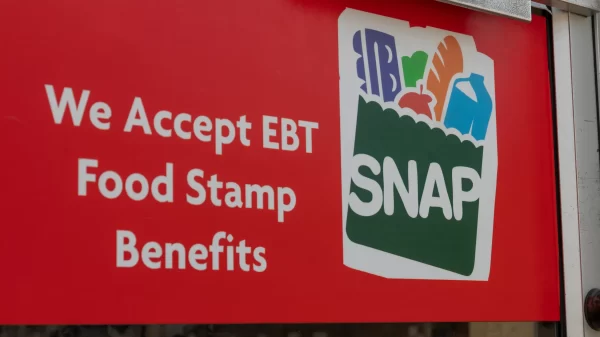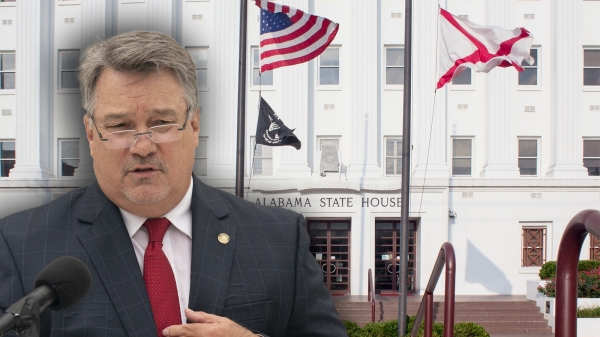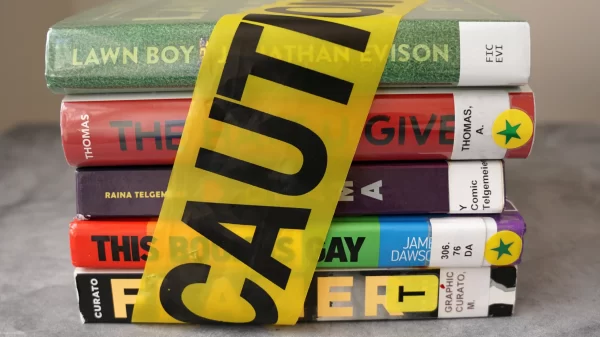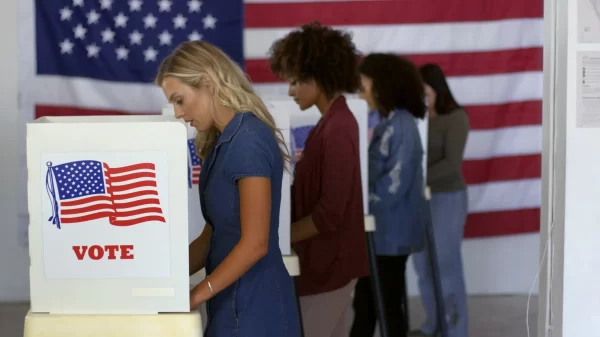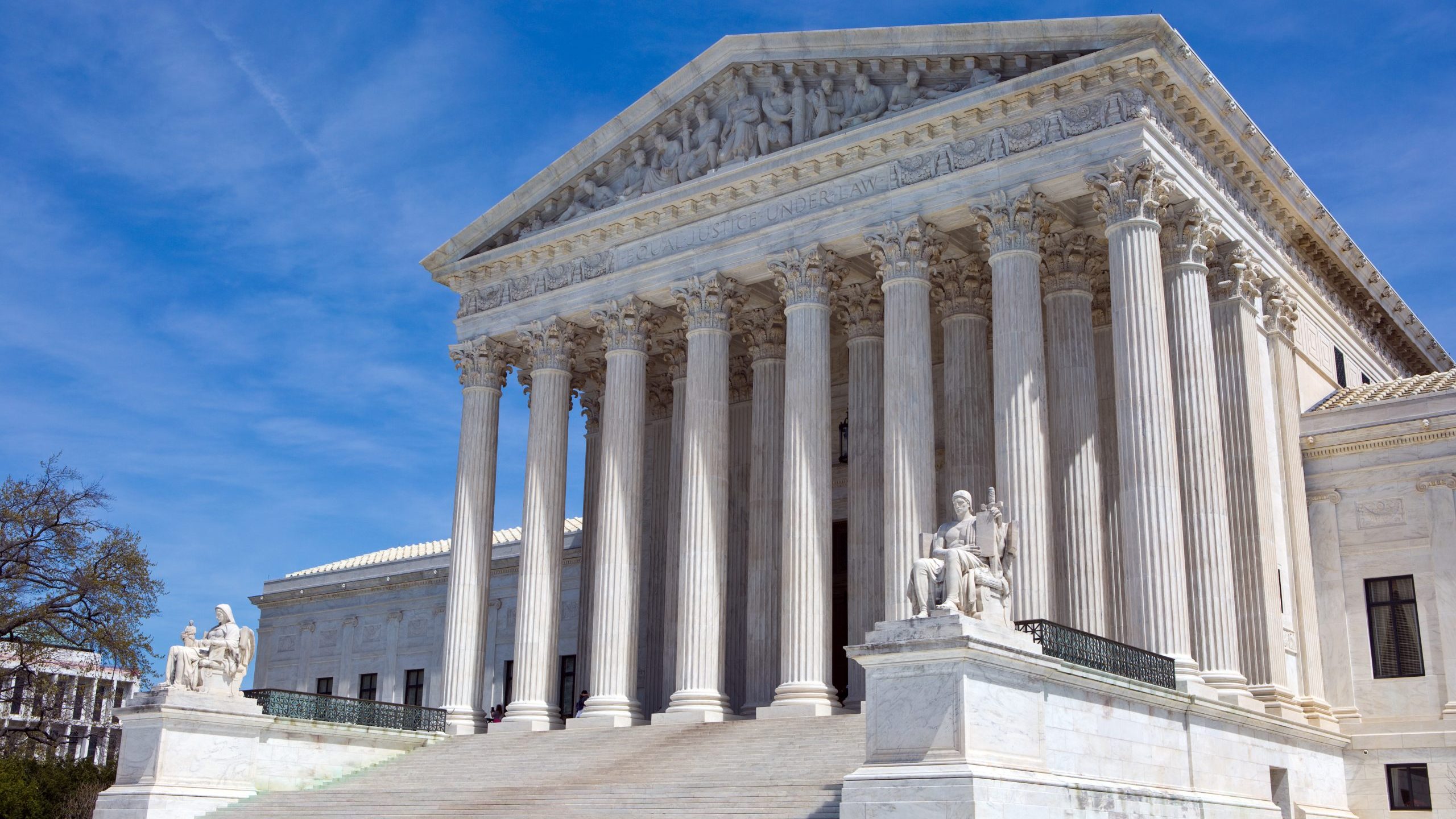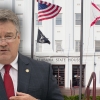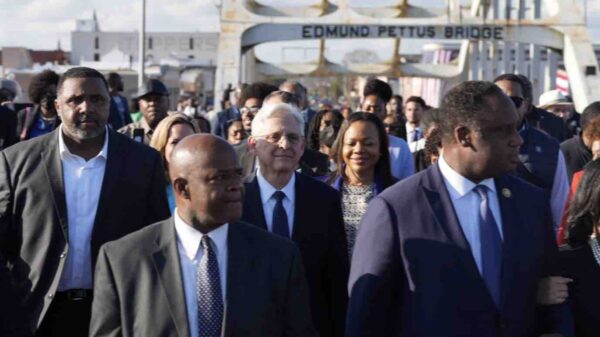|
Getting your Trinity Audio player ready...
|
On Tuesday, attorneys representing the Milligan plaintiffs in the Allen v. Milligan suit filed a response to the U.S. Supreme Court asking the court to deny Alabama’s emergency request for a stay that was filed last week with the high court.
Two weeks ago, a federal district court ruled that Alabama’s 2023 congressional map passed by the legislature in July failed to create a “remedy” to the previous map’s dilution of Black voting power. Secretary of State Wes Allen on behalf of the state filed an appeal to stay that decision but the district court refused the stay prompting Allen to make an emergency request to the Supreme Court to freeze the decision.
Supreme Court Justice Clarence Thomas gave the plaintiffs in the litigation until Sept.19 to issue their response to the stay. The counsel for the plaintiffs did so and in their filing stressed that Alabama defied both the district court and Supreme Court’s previous rulings. Much of the response argues the map put forth by the state plainly fails to remedy issues with the prior map by not implementing two majority Black districts as was ordered.
“The Secretary, and legislative defendants, are free to make whatever arguments they wish to the Special Master about their preferred redistricting criteria for formulating the remedial map,” the filing stated. “What the Secretary cannot do is pretend this motion is something other than what it is: a request to defy this court’s decision by implementing a “remedy” that cures nothing and prevents Black voters from having an opportunity to elect candidates of their choice in a second congressional district. The Court should deny Alabama’s application for stay pending appeal and summarily affirm the district court’s decision below.”
In June, the Supreme Court sided with the district court and ruled in Allen v. Milligan that Alabama’s 2021 congressional map likely violated Section 2 of the Voting Rights Act and diluted Black voting power. The district court ordered Alabama to create a second majority, Black district or “something close to it.” Yet, Alabama defied this order backed by the Supreme Court and kept only one majority Black district.
The state has attempted to argue they were trying to keep intact “communities of interest.” The Milligan counsel attacked this argument in the filing stating the legislature changed the criteria and factors involved with determining “communities of interest” and that those communities are not a “trump card” to ignore Section 2 or the creation of a second majority Black district.
“More fundamentally, nothing in the law justifies treating state-selected communities of interest as a “trump card” that overrides compliance with [Section 2] or nullifies Plaintiffs’ showing that Black Alabamians are geographically compactenough to comprise a reasonably configured second opportunity district,” the counsel wrote. “To the contrary, a rule that made certain retrofitted, attorney-identified communities of interest or map-drawing requirements inviolable would radically rewrite the [Section 2] inquiry, which “for more than forty years … has expressly provided that a violation is established based on the ‘totality of circumstances.’”
The response also mentioned the peculiar nature of how Alabama passed the Senate version of the congressional map and the state’s confidence in getting the case heard “anew” by the Supreme Court. APR originally reported in July this was due to high ranking ALGOP members including Attorney General Steve Marshall acquiring “intelligence” Supreme Court Justice Brett Kavanaugh could potentially flip his vote to overturn Section 2 of the VRA.
However, new reporting from APR has discovered the dark money connections supporting this disobedience. in D.C. supporting the ALGOP’s deliberate disobedience of Supreme Court orders and attempts to overturn Section 2 of the VRA.
The report details connections between far-right figure Leonard Leo labeled the “hidden architect of the Supreme Court”, Marshall, Solicitor General Edmund LaCour and a D.C. law firm called Consovoy McCarthy. Leo is infamous for supporting high stakes political challenges to attempt to overturn Supreme Court decisions like Roe and it appears he is now attempting to support an upheaval of voting rights law.
“These previously unreported connections between Alabama officials who led the state’s 2023 redistricting process and various players seeking to reshape America may be the reason Alabama’s Republican-controlled legislature gambled on a rehearing before the U.S. Supreme Court,” Bill Britt wrote, “in hopes their inside intelligence was right in believing Kavanaugh would change his previous vote in Allen v. Milligan.”
In Allen’s stay request he asked the Supreme Court to decide by at least Oct. 4 in hopes the current map will be used in the upcoming election cycle. The Milligan attorney closed their brief by stating Alabama’s actions would harm substantial portion of the public.
“Alabama’s flagrant disregard of court orders and significant lack of responsiveness” to a sizeable portion of the electorate harms the strong public interest in protecting the right to vote and the rule of law.”















